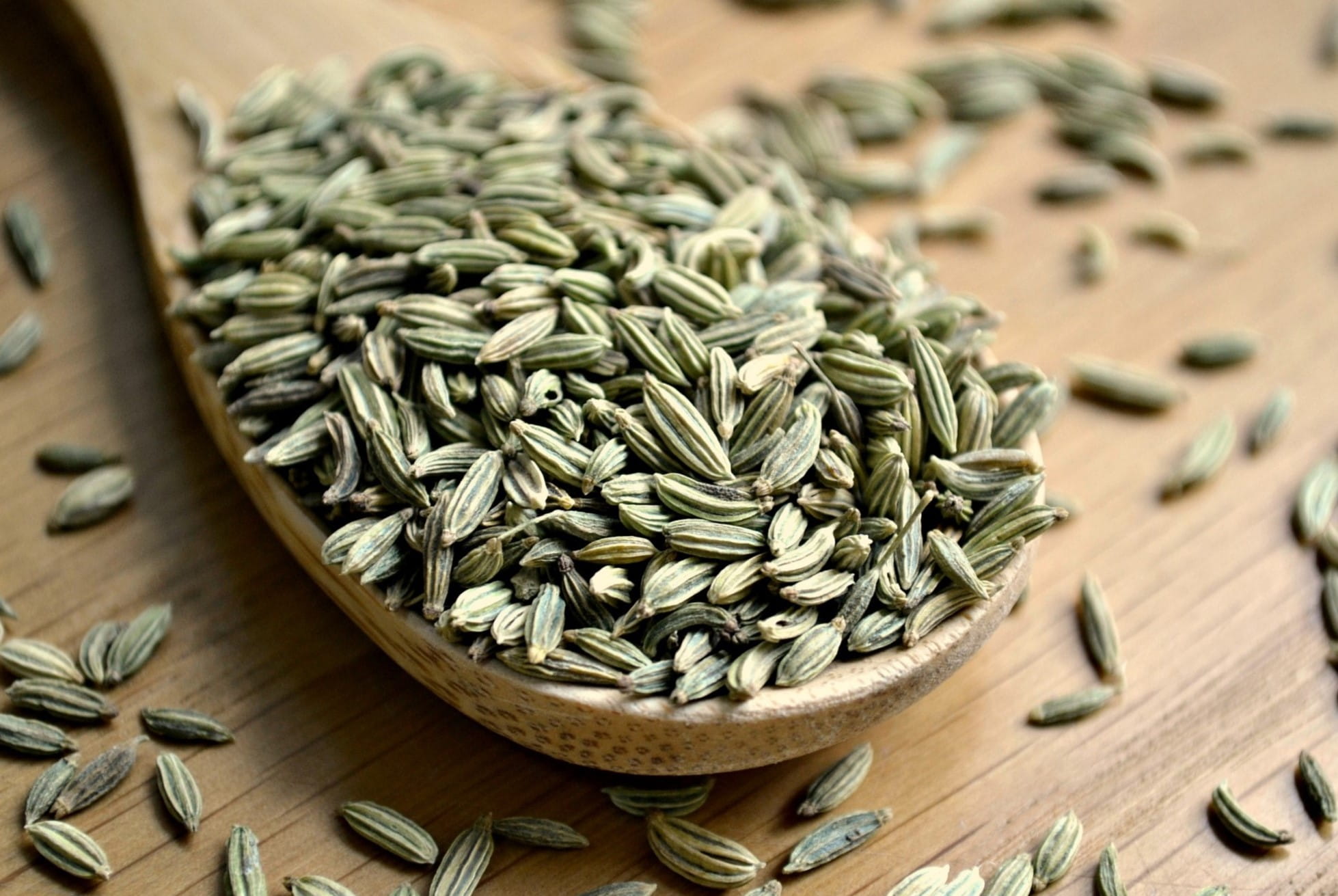Eating more microbiome friendly foods can help improve your immune system. Here, we share the top 6 natural immune supplements that can support your gut health and help ensure you’re flu and allergy-free all year round.
Your immune system and microbiome are constantly shaping one another. More and more research links the microbiome to conditions such as allergies, inflammation, and immune deficiencies. Just how the gut bugs and the immune system influence each other, however, is still not completely understood. Luckily, researchers have recently revealed a tight connection between the two, with our environment and lifestyle being identified as some of the major players in the game1. However, it’s not only allergic diseases that matter when it comes to the wellbeing of the gut. New studies show that it’s also our diet and the vitamins we consume which can play a big role in maintaining a healthy immune response.
Clostridia – Keeping the Immune System from Attacking the Good Guys
The gut microbiome regulates the host’s immune system, ensuring that our good gut bacteria are safe from being cleared out by the defence system. Notably, a new study underlines one particular class of bacteria as the hero of the interaction between our gut and immune system.
Researchers from Brown University showed that bacteria of the class Clostridia regulate the levels of a protein responsible for the conversion of dietary vitamin A to its active form in the gastrointestinal tract. Clostridia reduce the expression of the protein and promote increased vitamin A storage in the liver.
Establishing that bacteria can regulate how vitamin A is being metabolized in the intestine can help clarify the relationship between inflammatory diseases and the microbiome.
They showed that the expression of the protein, and thus the vitamin A in its active form, was lower in normal mice compared to germ-free mice. By suppressing the active form of vitamin A, the scientists found an enhanced resistance to colonization of Salmonella – and concluded that by reducing the synthesis of the active form of vitamin A, the commensal bacteria communities are protected from excessive immune activity while stabilizing the balance that prevents colonization by pathogens.
The scientists are optimistic about this finding helping in treatments for disorders like Crohn’s Disease, since vitamin A plays a role in inflammation in the bowel. They hope that establishing that bacteria can regulate how vitamin A is being metabolized in the intestine can help clarify the relationship between inflammatory diseases and the microbiome. The researchers state that both the diet and the bacteria in our gut are critically linked in regulating our immune cells and how they behave2.
The Dangers of a Western Diet
Boosting bacteria like Clostridia seems like the logical choice – after all, they appear to be able to shut out pathogens and stabilize the immune response for all the good gut bugs. So, just what kind of food should you eat to make sure you’re helping out your immune system?
Research has repeatedly demonstrated that the typical Western diet isn’t a particularly good choice. Loaded in fats and sucrose, and low in fiber, this diet is one of the most prevalent in westernized countries – and is often associated with obesity. Western diets have also been known to influence microbial pathogenesis and chronic inflammation.
What’s more, one study showed that mice fed a Western diet had higher baseline inflammation and increased sepsis severity3. Sepsis is a deleterious immune response to infection that leads to life-threatening organ dysfunction. They showed that the diet may be directly regulating the innate immune system though an unknown mechanism. Ultimately, it seems the Western diet is reprogramming the basal immune status and response to sepsis, leading to more severe disease and poorer outcomes3.
Foods to Avoid for Better Immunity
A diet that encourages optimal immunity firstly involves eliminating certain components that can be detrimental. The Standard American Diet (SAD) is overloaded with sugar, salt and oil, which can deplete beneficial bacteria and create an unfavourable gut environment.
Namely, make sure to pay attention to your consumption of foods filled with the following:
Salt
Avoid too much salt as this has been observed to induce inflammation and worsen autoimmune disorders4. Takeaway: Avoid processed foods like salty snacks, and only add salt after cooking.
Saturated fatty acids
Saturated fatty acids can be pro-inflammatory and disturb immune functions by changing the lipids of the membranes of the immune cells. Takeaway: Limit your intake of butter, cheese, pork and beef fat4.
Ultra-Processed Foods
Ultra-processed foods has been directly linked to 32 health problems, including premature death. Takeaway: avoid foods such as ice cream, ham, sausages, crisps, mass-produced bread, breakfast cereals, biscuits, carbonated drinks, fruit-flavoured
6 Powerful Natural Immune Supplements
If you’re looking to support your immune system, eating microbiome friendly foods is a good place to start. Paying attention to these 6 natural immune supplements can strengthen your immunity by fuelling your beneficial gut bacteria.
1. Omega-3 Fatty Acids
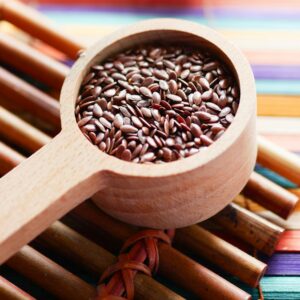
Omega-3 fatty acids have been shown to have anti-inflammatory effects4. Get your dose through ground flaxseeds!
2. Vitamin C

Vitamin C is great to fight off colds by boosting white blood cells and vitamin E is good for maintaining a healthy immune system and reducing inflammation4,5. Eat more fruits and vegetables to boost vitamin C.
3. Vitamin E
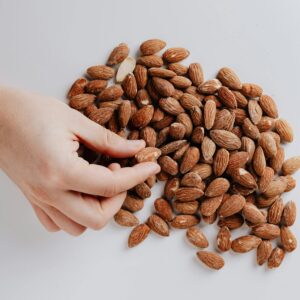
Vitamins E supplementation is fantastic to boost the general health, including the immune system. Eat more almonds and other nuts to provide your body with more vitamin E.
4. Zinc
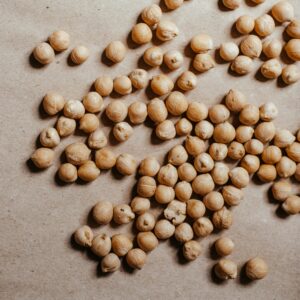
Been sick lately? Try increasing your intake of zinc as disease progressions can lead to zinc deficiency, which can cause weakened immune function. Great natural sources of zinc include chickpeas, lentils, pumpkin seeds, tofu, oatmeal and shiitake mushrooms.
5. Selenium

Selenium has tremendous microbiome friendly properties4. What’s more, research has shown that eating only 4 brazil nuts per month can meet all your selenium needs, and help lower your levels of cholesterol!
6. Iron
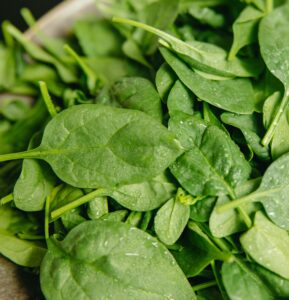
Iron is an immune powerhouse – no wonder Popeye loved it! Get your dose through dark leafy greens like spinach4.
Closing Remarks
Eating a microbiome friendly diet can promote your immune health. Fill up your plate with natural immune supplements, such as the polyphenol-rich foods listed above, and avoid industrially made supermarket options.
It’s important to remember to not completely cut foods rich in healthy calories and protein, like nuts and seeds, as these types of food are necessary for optimum immune function – an insufficiency can decrease the immune system’s capacity to respond, as well as impair the construction and function of the thymus4.
There are countless different ways to optimise your diet for the good of gut – you just need to figure out what works for your taste buds!

